Skopje, 09.23.2017 – On Sunday, 17 September, these portraits were made of the farmers market Bunjakovec, located in the center of the city of Skopje. They testify to a marketplace and livelihoods under threat from development. In the past decade Skopje has undergone a rapid destruction of public spaces, including parks and public squares. Now the markets where people throughout the city have traditionally bought food are increasingly under threat. While this market dates to the ’50s, other markets in Skopje can trace their histories all the way back to the Ottoman period.
In the 90s, during the era of privatization, the Bunjakovec market became owned by a private company, which is in talks to develop it. One proposal involves building a parking lot above it, a plan that would literally pave the way to its future destruction.
The market is open seven days a week. It is the primary or only source of income for the people who sell there. Because the land is attractive to developers they are under pressure and face losing their space. We asked each seller we bought from if we could photograph them. This nut seller immediately struck this pose.
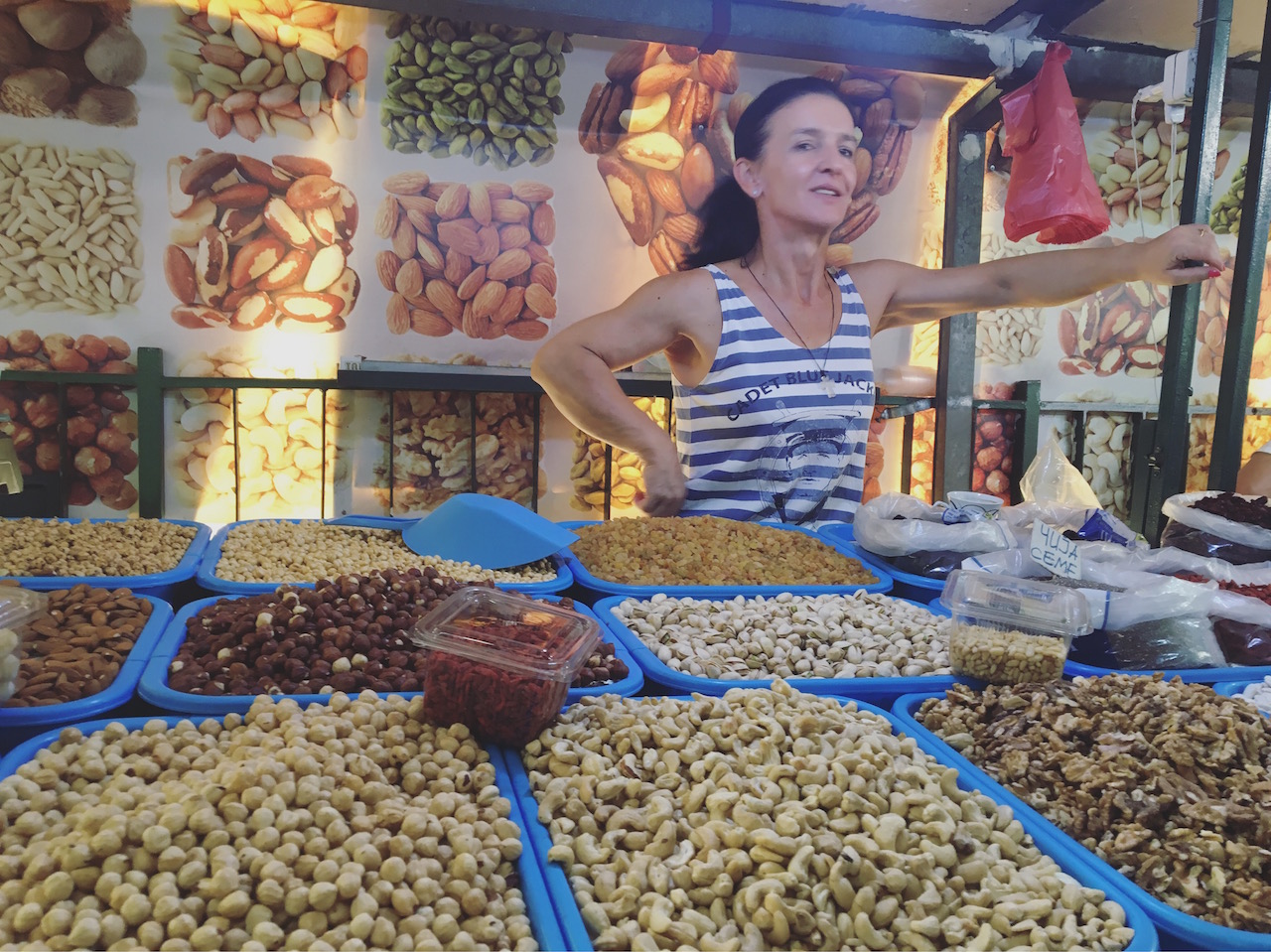
The honey seller. With her many magical products and tinctures(propolis, pollen, white marshmallow-like bee goo).Though most of the produce in the market comes from the villages around Skopje, her wares come from beekeepers in the mountains in northeastern Macedonia.
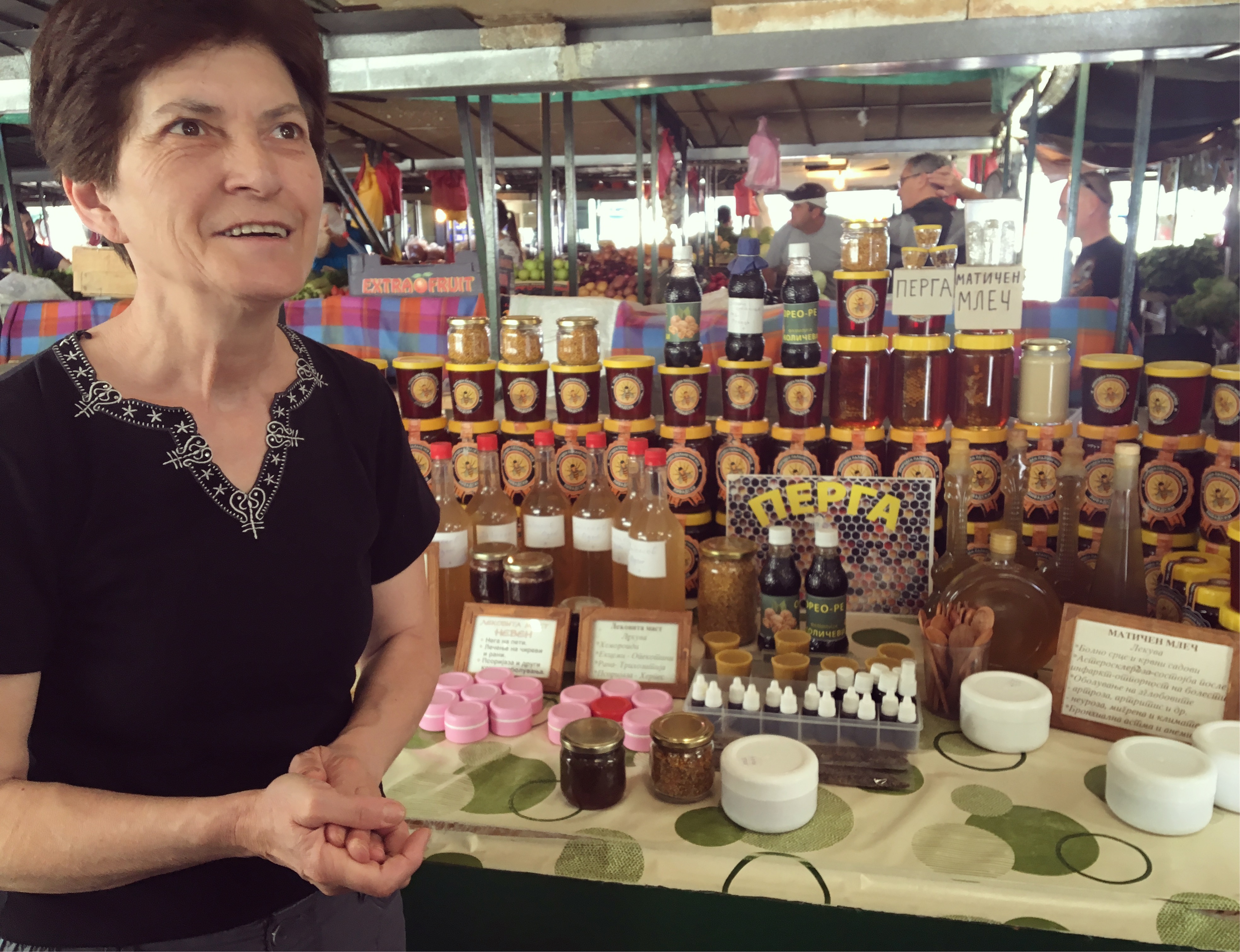
Floating in a sea of tomatoes. These deep ruby red tomatoes are being sold by an Albanian selling side by side with sellers who are ethnic Macedonians, Serbs, and Roma people.
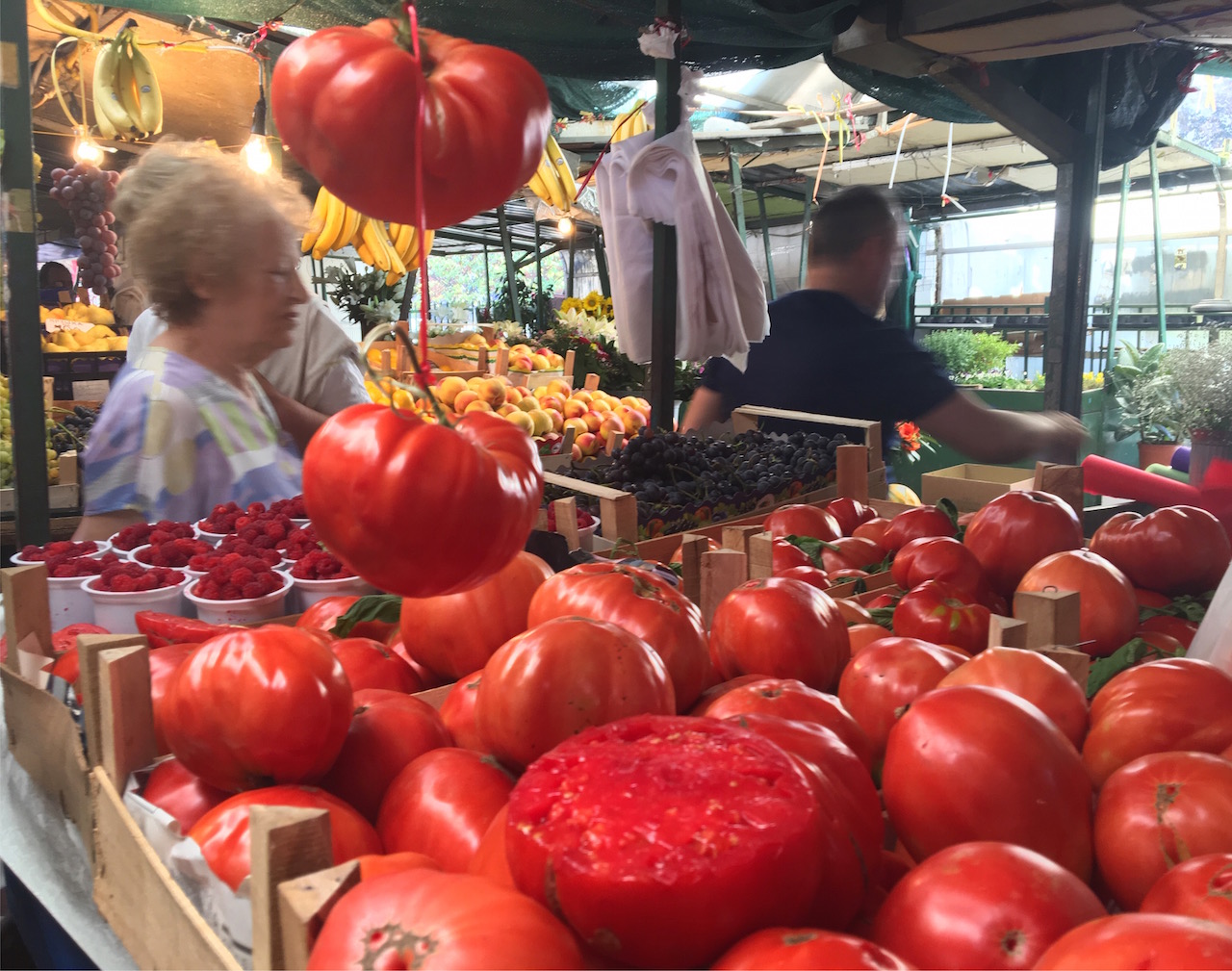
“If you do not know me don’t bro me.”
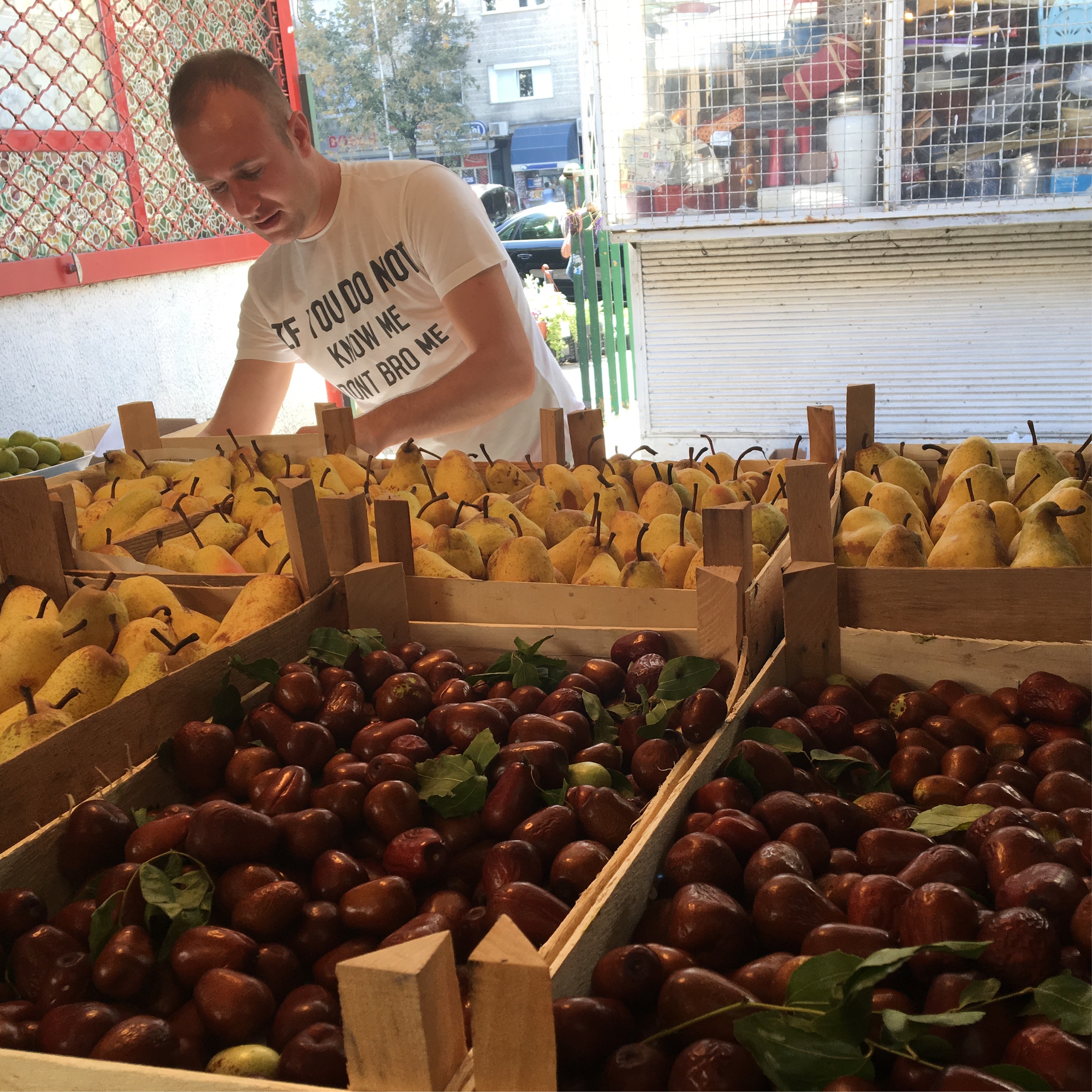
Standing on top of a tower she built
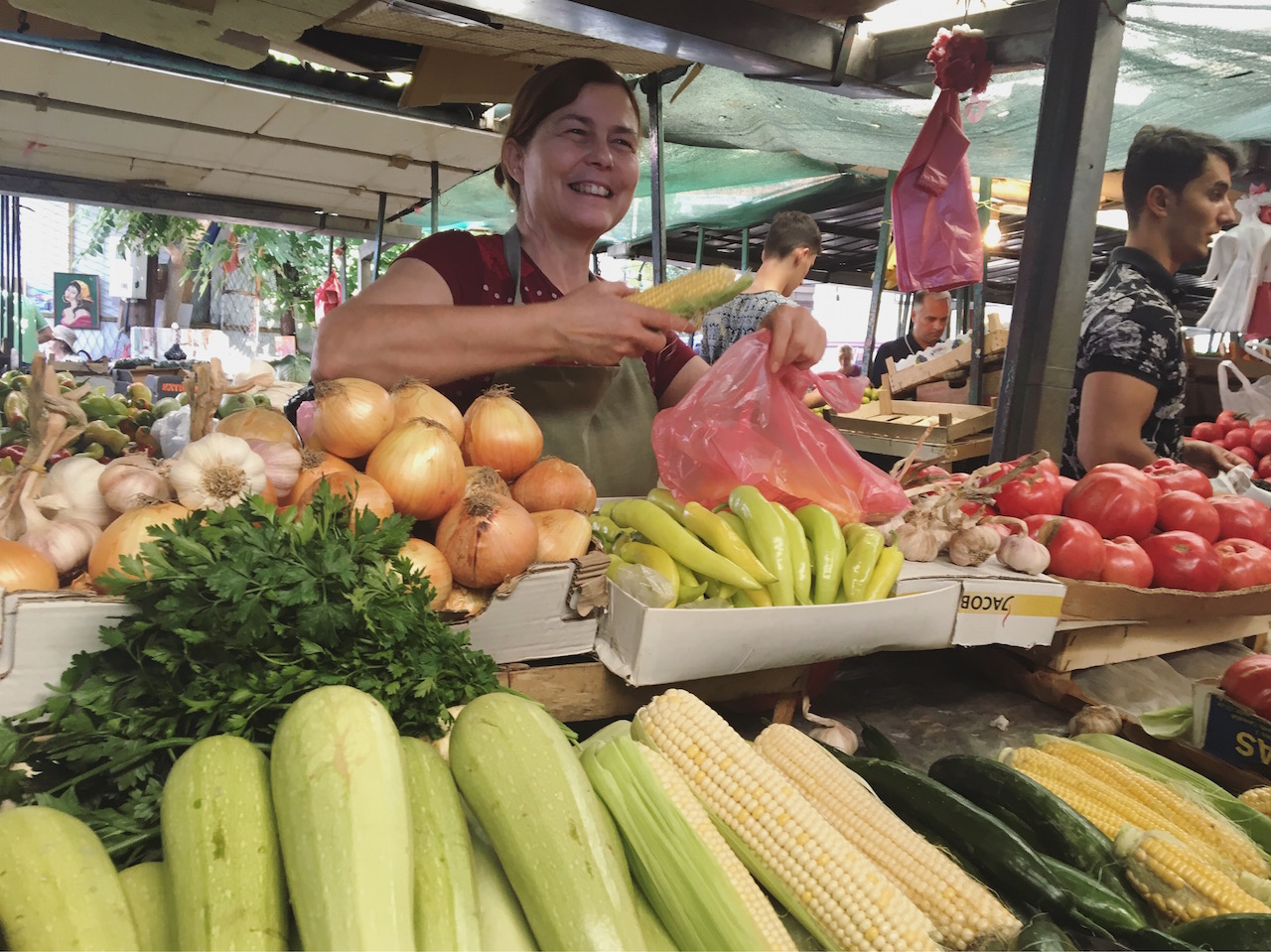
Butcher’s shop with a dolphin curtain. It’s near the market and depends on its customers. “Your mom must be happy because you got out of this country.”
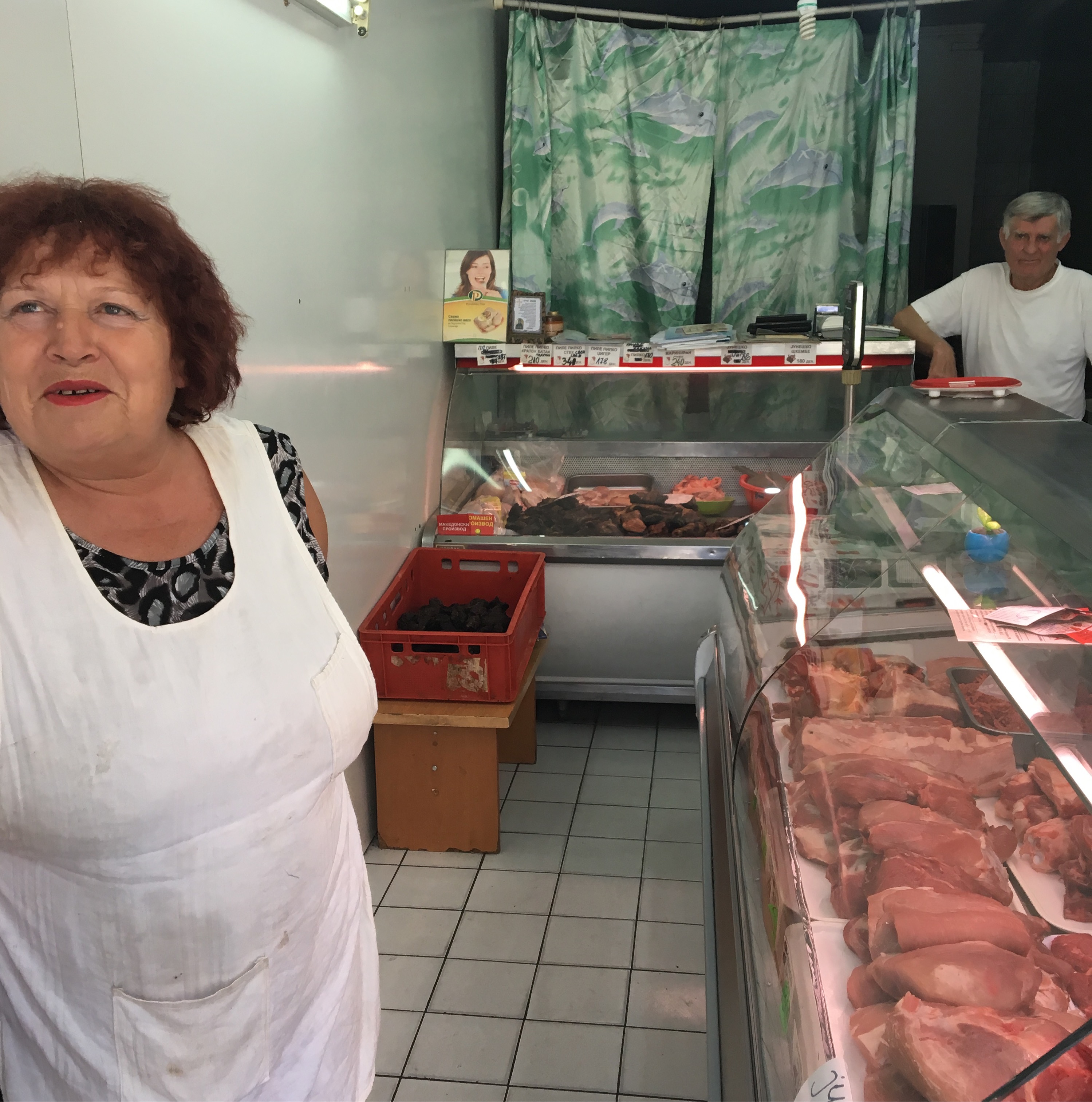
Flower seller just outside the market. A few months ago, the mayor of this part of the city ordered all of these flower sellers on the street, who also sell herbs and dried teas, evicted. A few have come back. This is how they survive. “But photograph the flowers not me,” she said. “I’m not so pretty.”
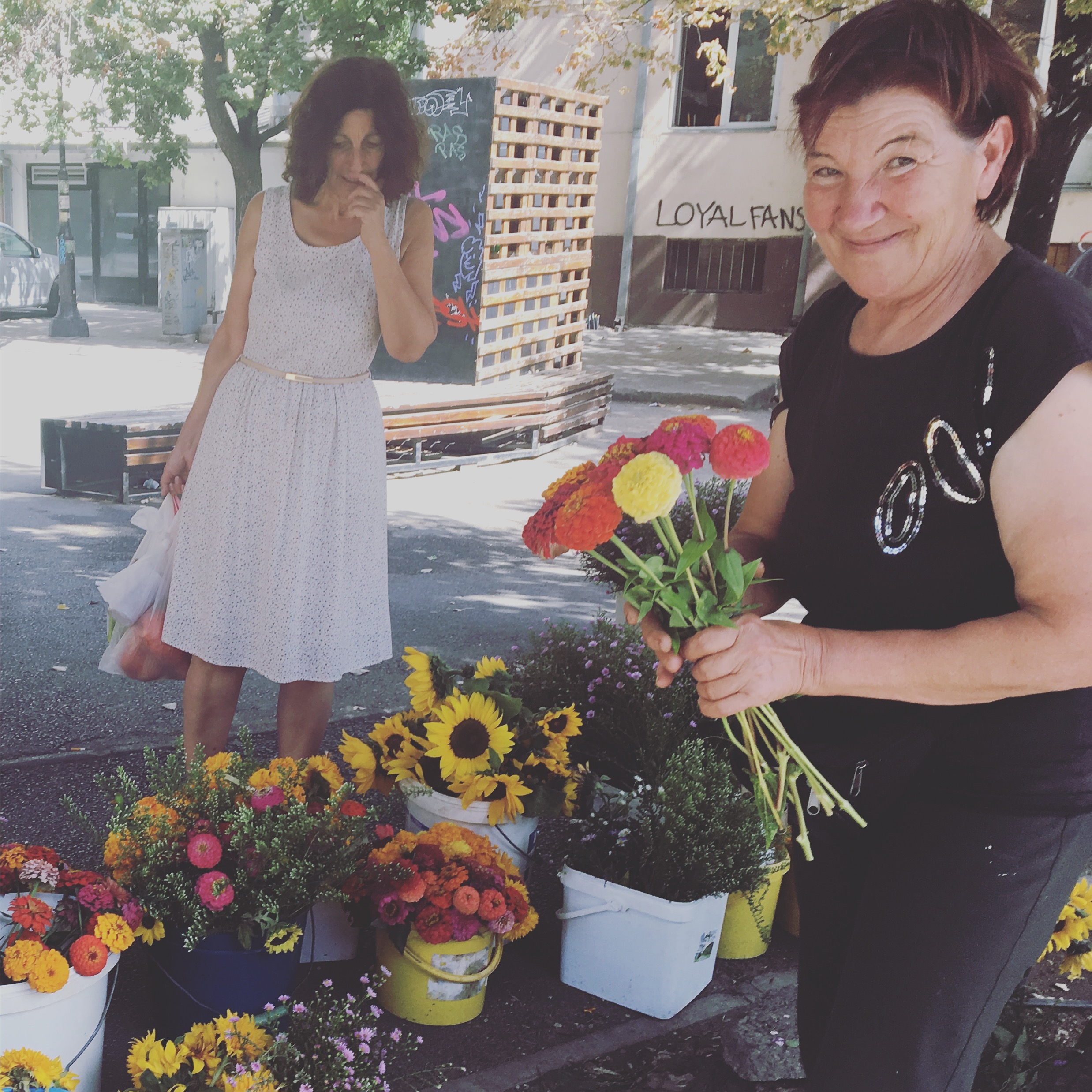
In the past few years the market has dwindled somewhat. Many people have left Macedonia to escape economic hardship and unemployment. If the market closes the neighborhood will be left without a supply of local produce. And hundreds of families will be left without work.
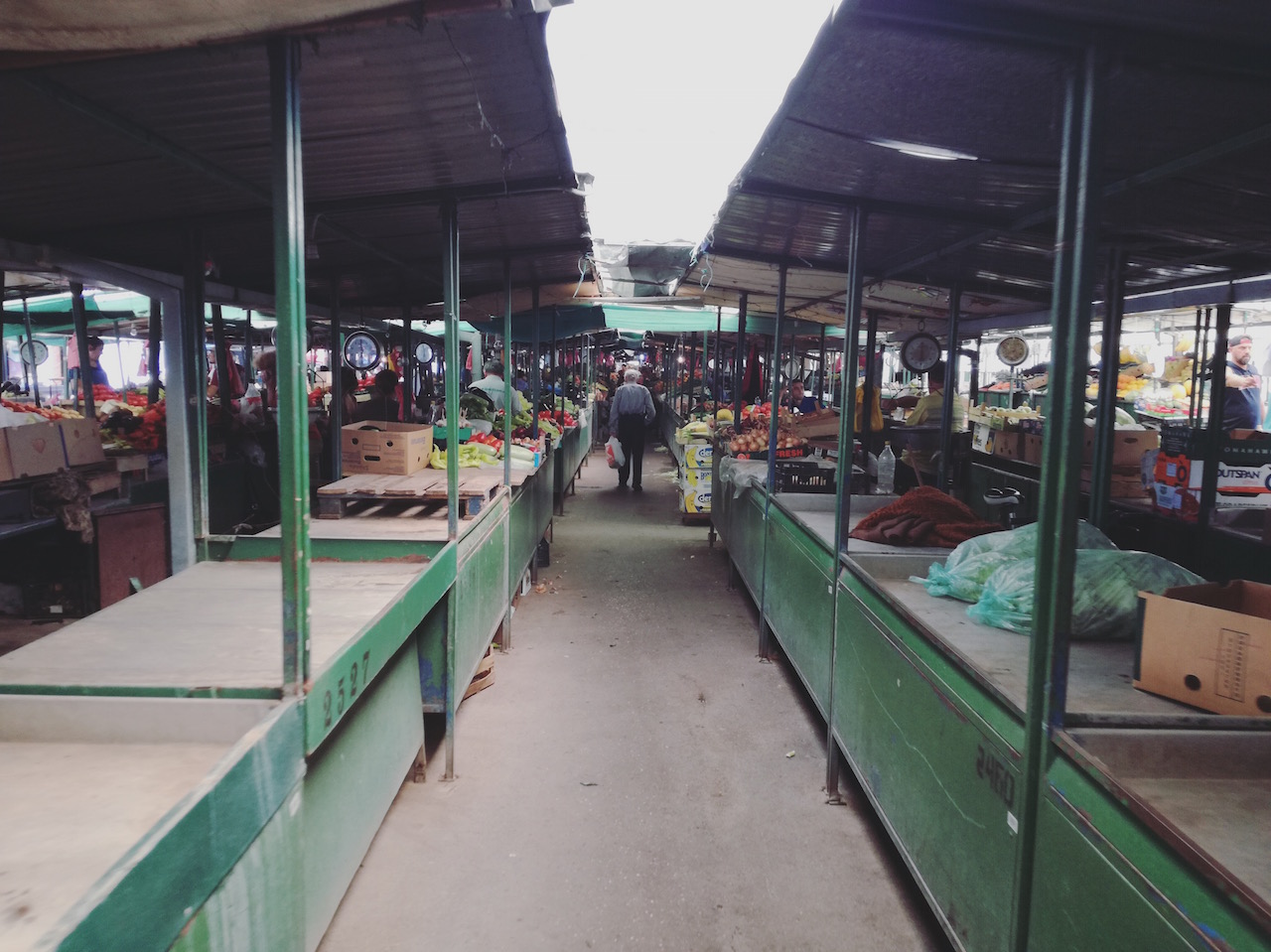
Photos by Marisa Mandabach, Ph.D.
Story by Marisa Mandabach and Aleksandar Shopov, Ph.D.




